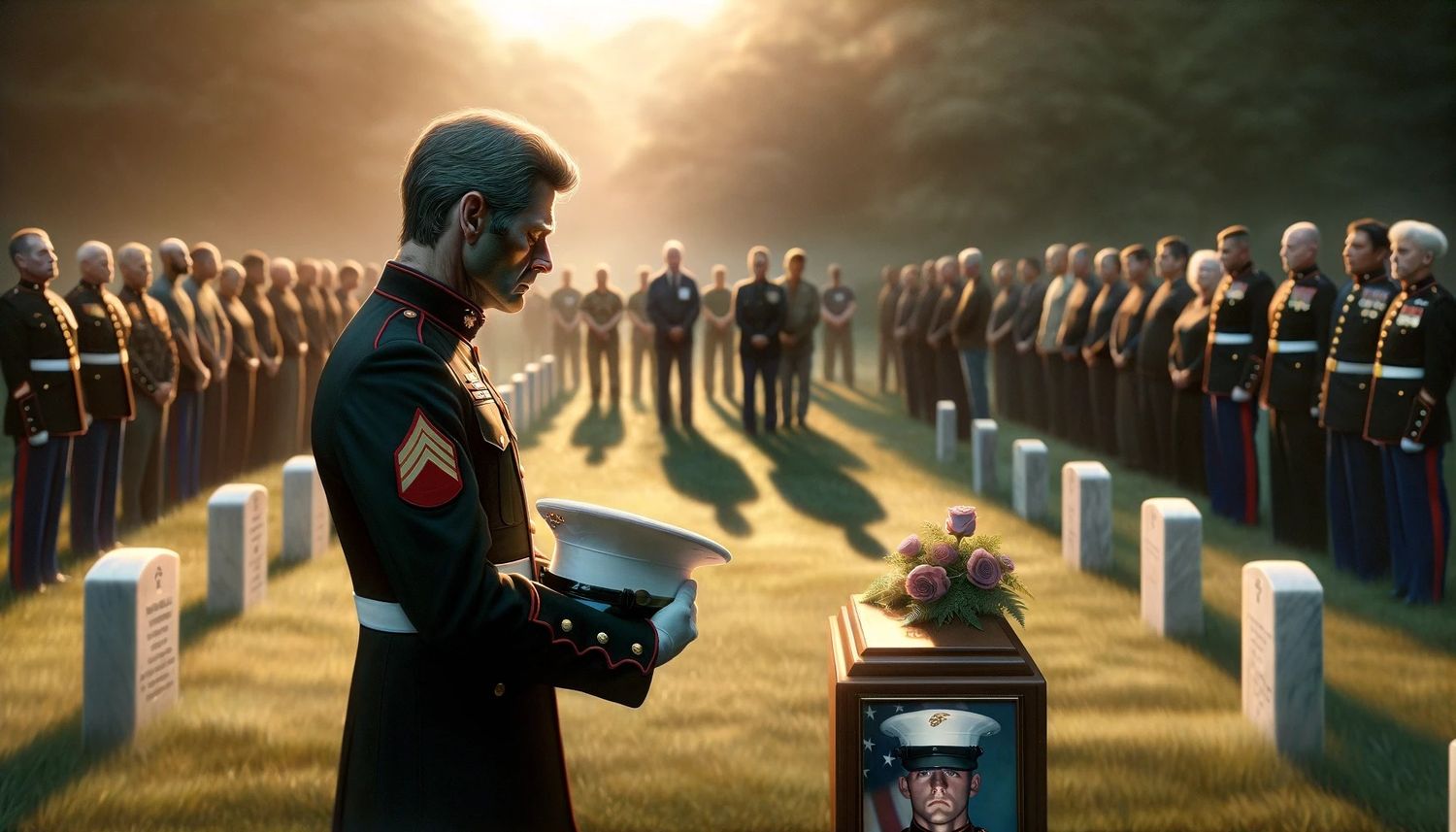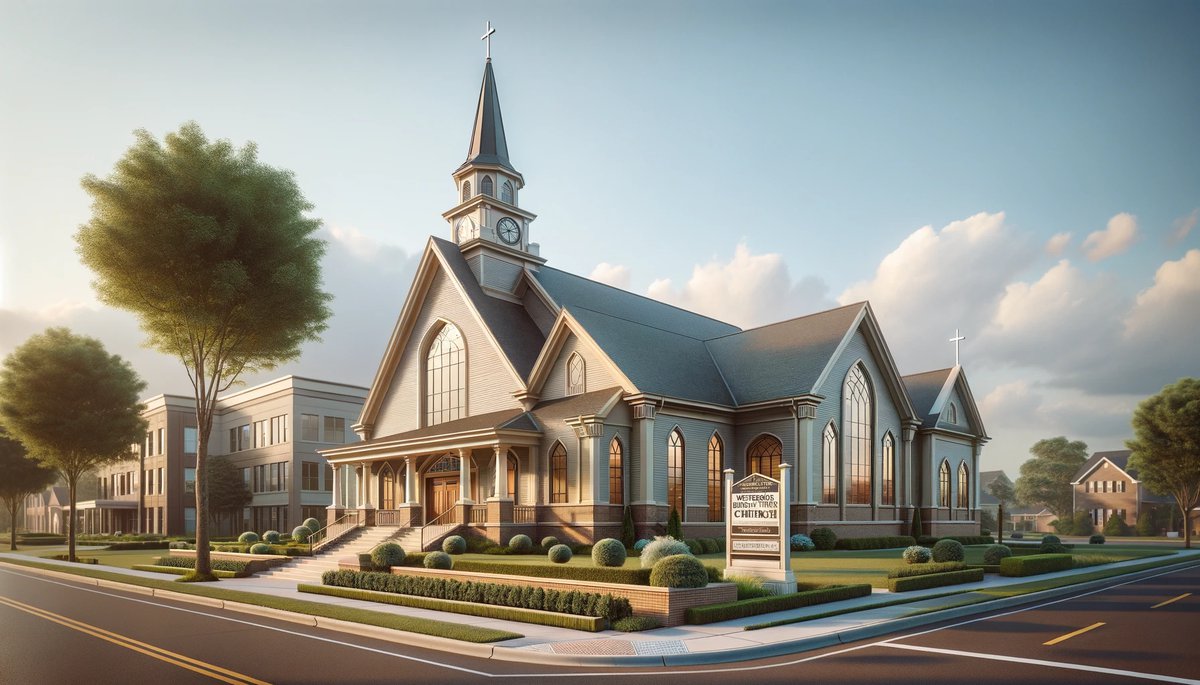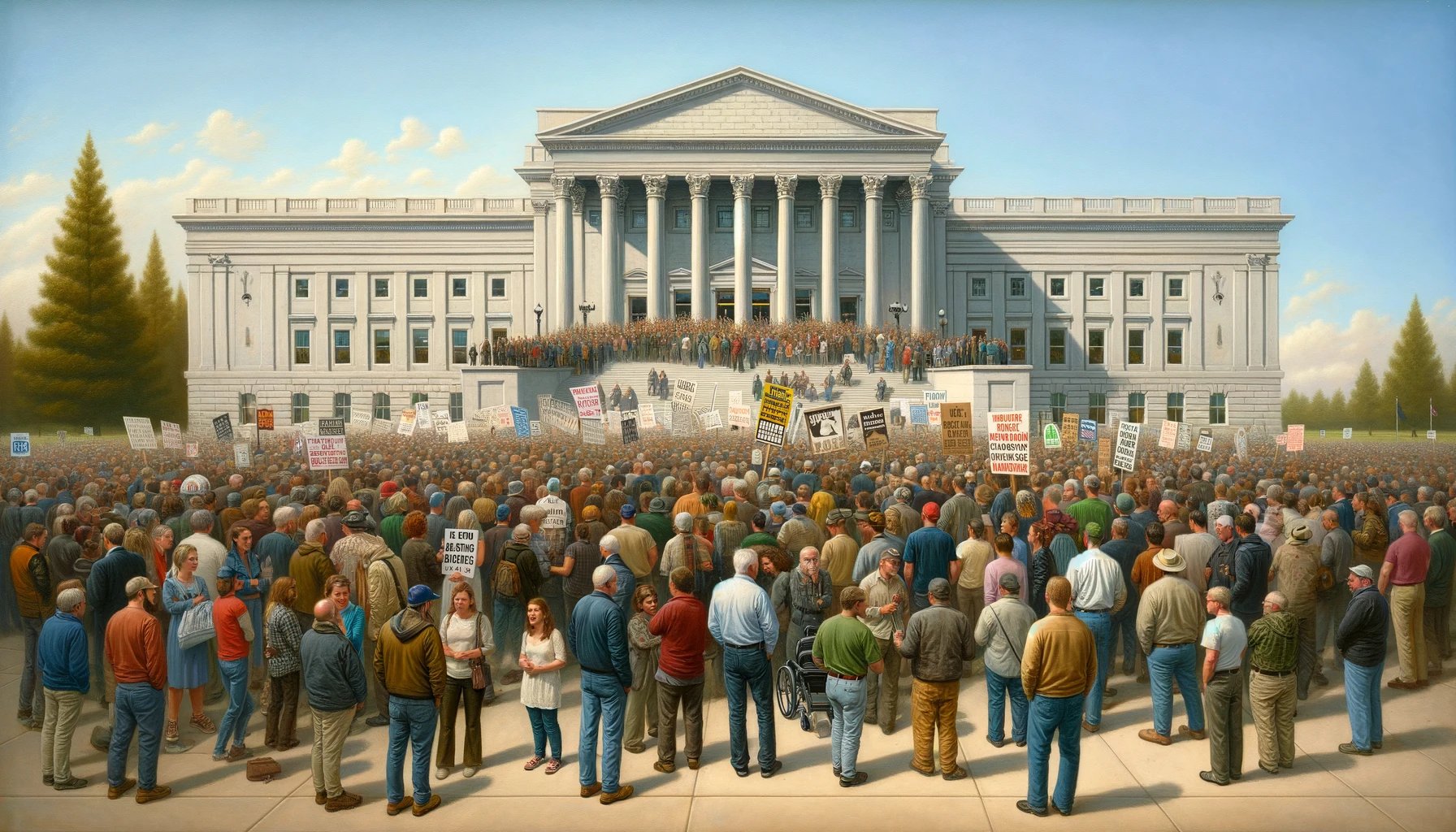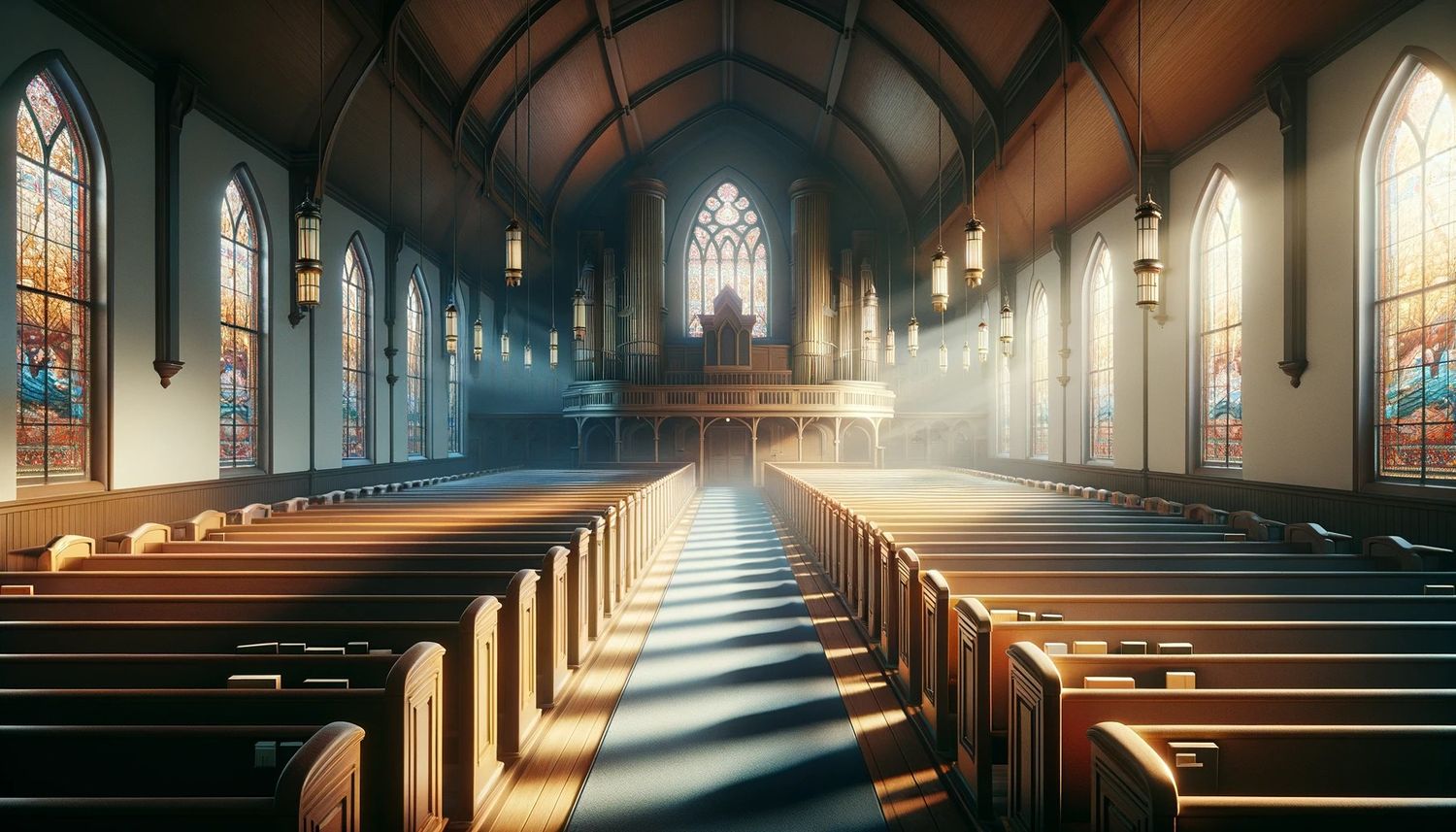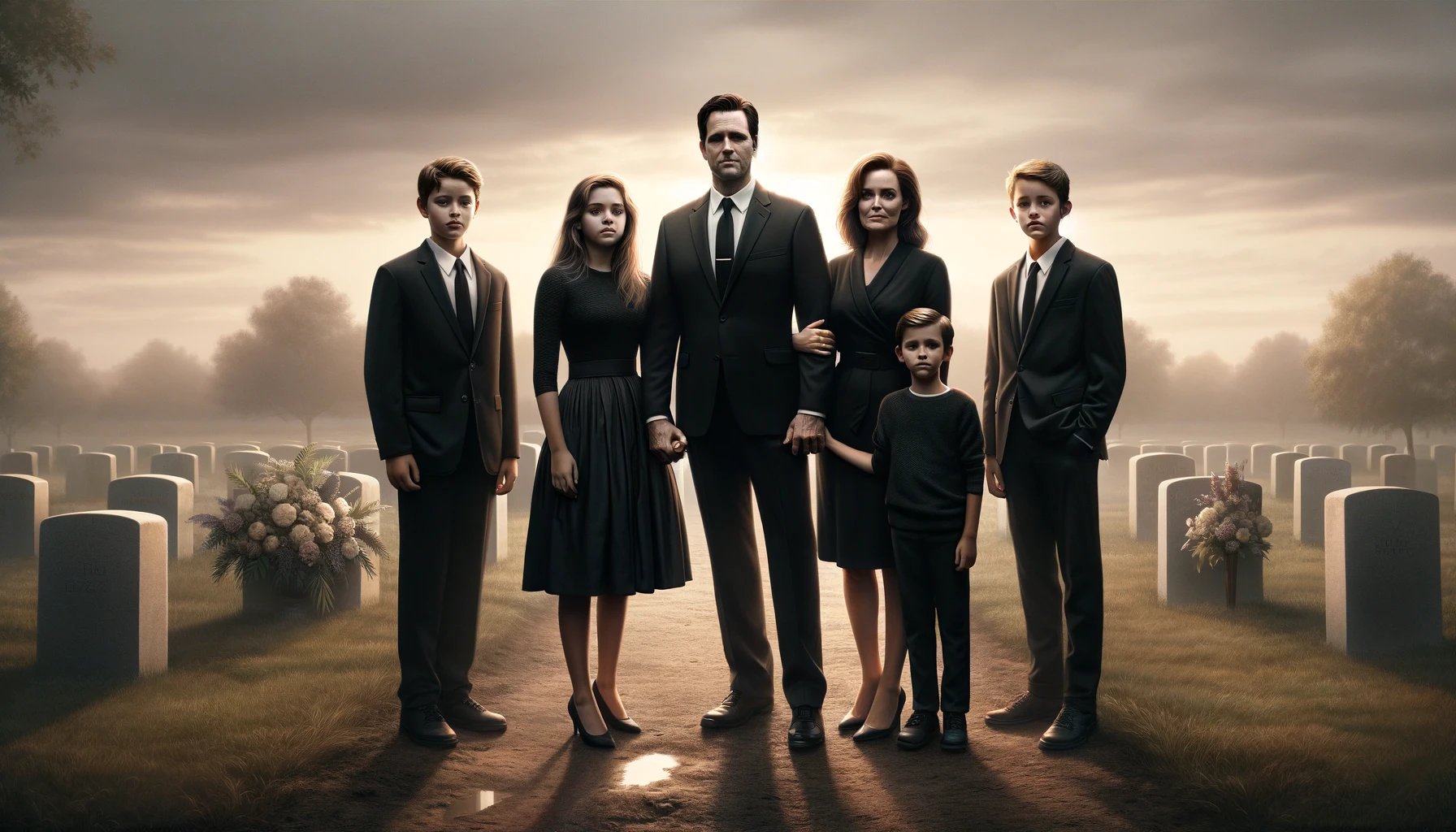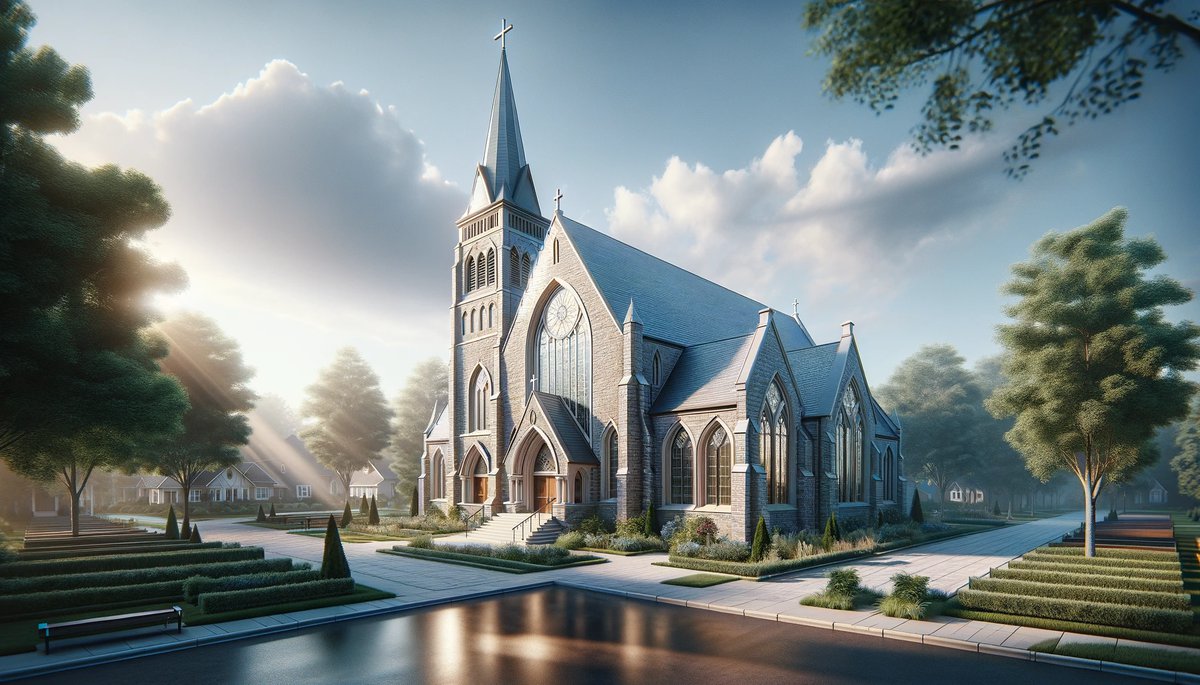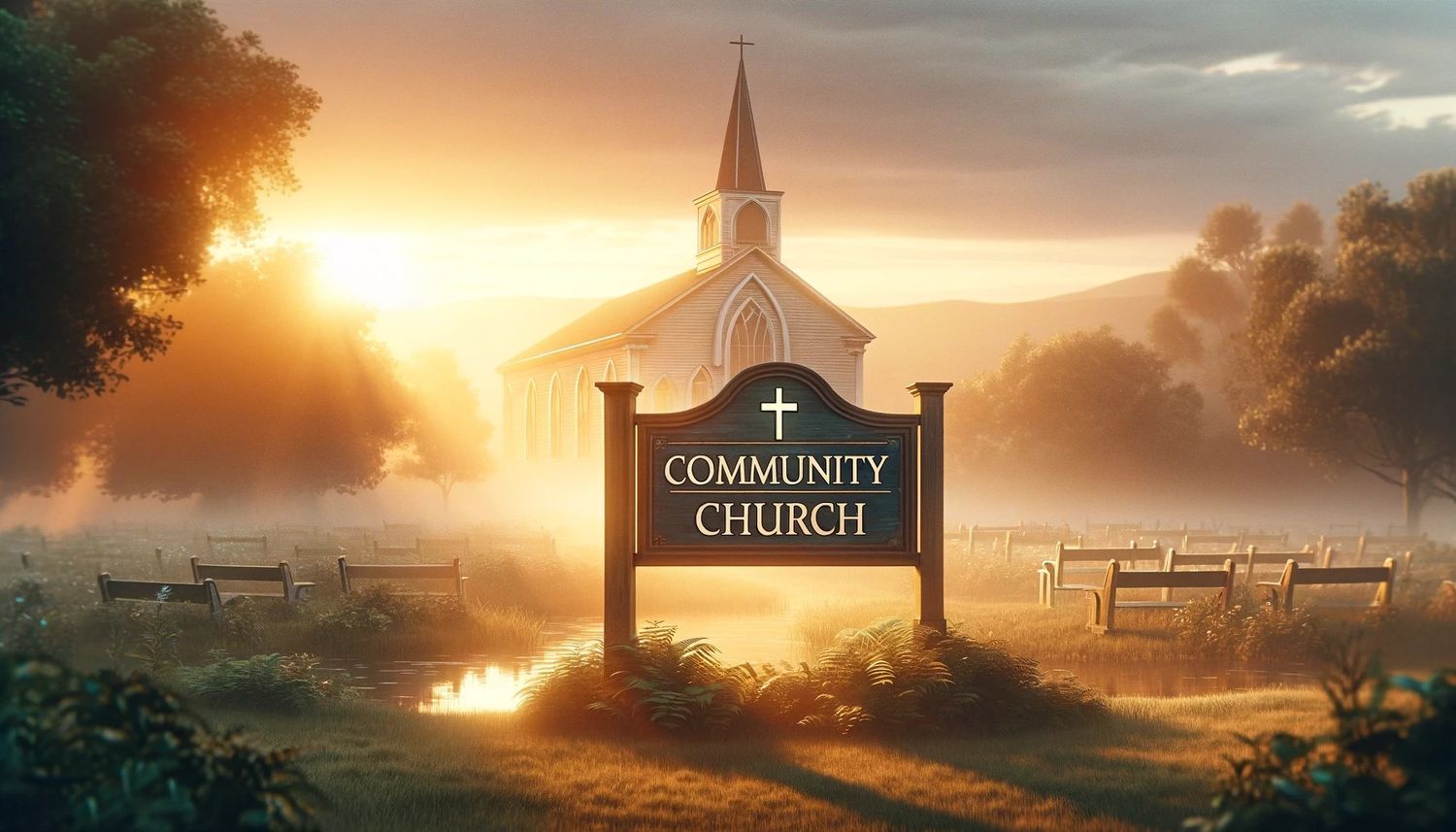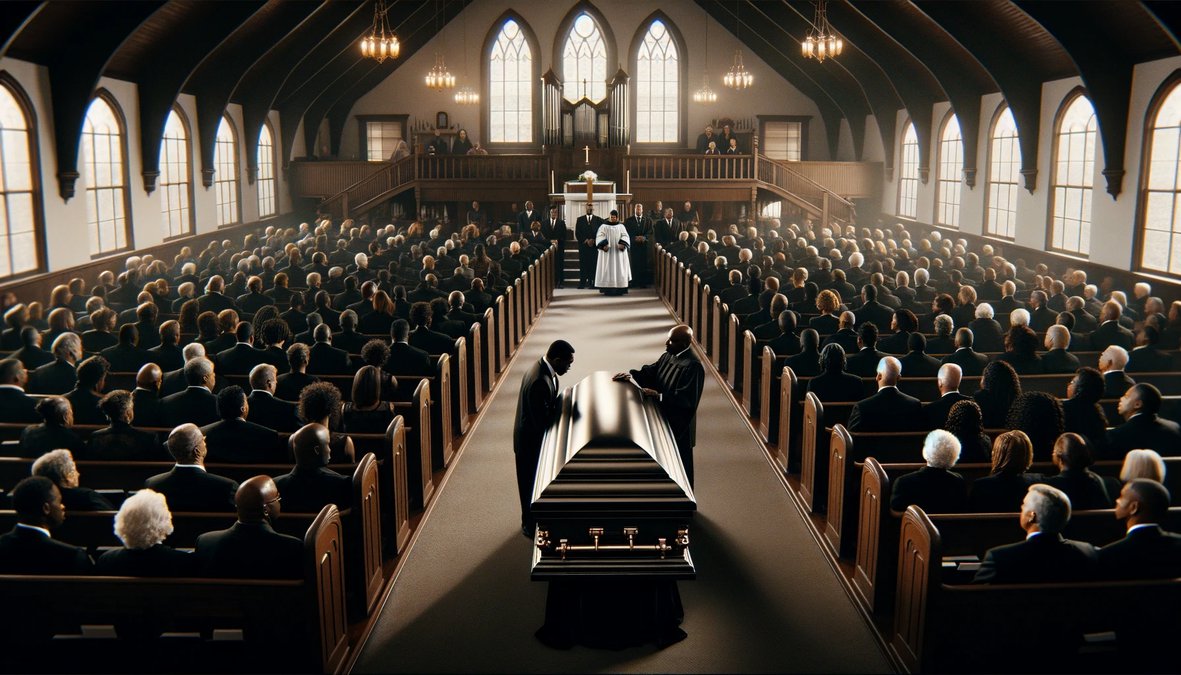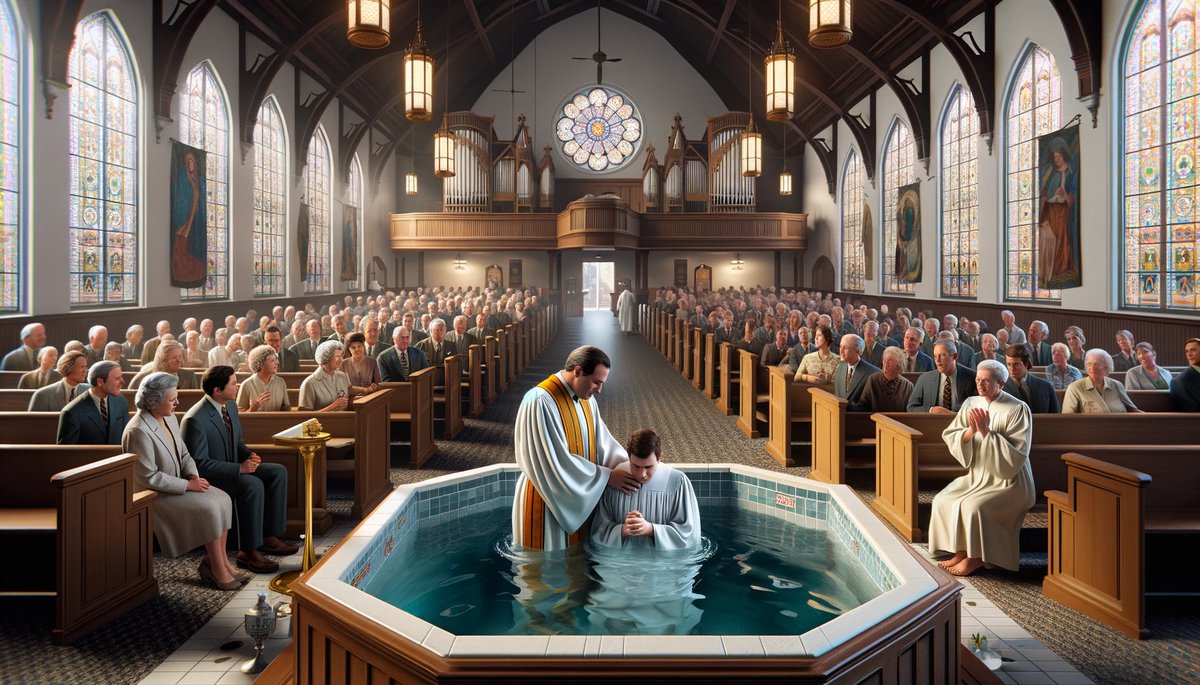Home>Theology and Spirituality>Why Does The Westboro Baptist Church Protest Funeral Of Soldiers


Theology and Spirituality
Why Does The Westboro Baptist Church Protest Funeral Of Soldiers
Published: February 20, 2024
Ericka Andersen, an editor at Christian.net, expertly merges digital strategy with content creation, focusing on faith and societal issues. Her communication skills enhance the platform's engaging narratives, fostering meaningful dialogue on belief's impact on society.
Discover the reasons behind the Westboro Baptist Church's controversial protests at soldiers' funerals. Explore the intersection of theology and spirituality in their actions.
(Many of the links in this article redirect to a specific reviewed product. Your purchase of these products through affiliate links helps to generate commission for Christian.net, at no extra cost. Learn more)
Table of Contents
Introduction
The Westboro Baptist Church has garnered widespread attention and sparked intense controversy due to its highly publicized protests at the funerals of soldiers. This religious group's actions have evoked strong emotions and ignited debates about the boundaries of free speech, the nature of religious extremism, and the impact of such protests on grieving families and communities.
The Westboro Baptist Church's demonstrations have been met with a mix of outrage, disbelief, and confusion, prompting many to question the motivations behind these provocative displays. Understanding the history, beliefs, and practices of this controversial church is essential to comprehending the rationale behind their actions and the resulting societal impact.
In the following sections, we will delve into the origins of the Westboro Baptist Church, explore its core beliefs and practices, and examine the reasons behind its protests at the funerals of soldiers. Additionally, we will analyze the repercussions of the church's actions and the diverse responses they have elicited from various quarters. By shedding light on these aspects, we can gain a deeper understanding of the complexities surrounding the Westboro Baptist Church and its contentious demonstrations.
History of the Westboro Baptist Church
The Westboro Baptist Church, based in Topeka, Kansas, was established in 1955 by Fred Phelps, a former civil rights attorney. Initially, the church operated within mainstream Christian denominations, but over time, it diverged into a highly controversial and isolated entity. The church gained notoriety for its vehement anti-LGBTQ+ stance and its inflammatory protests at various events, including military funerals.
Fred Phelps, known for his extreme views, instilled a fervent and unwavering commitment to his interpretation of Christianity within the church's members. This fervor became the driving force behind the church's provocative activities. The church's fundamentalist beliefs and uncompromising approach to its interpretation of biblical teachings set it apart from mainstream Christian denominations.
In the 1990s, the Westboro Baptist Church began its public demonstrations, targeting events and institutions it deemed to be in opposition to its interpretation of Christian doctrine. These demonstrations often featured signs with incendiary slogans, reflecting the church's uncompromising stance on various social and political issues.
The church's protests at military funerals, in particular, drew widespread condemnation and intensified public scrutiny. The provocative and hurtful nature of these demonstrations sparked outrage and led to legal challenges and counter-protests. Despite facing significant opposition, the church remained steadfast in its mission, further solidifying its reputation as a polarizing and divisive religious organization.
The history of the Westboro Baptist Church is marked by a trajectory of increasing radicalization and isolation from mainstream religious communities. Its confrontational approach and unyielding adherence to its beliefs have positioned it at the center of contentious debates on freedom of speech, religious extremism, and the boundaries of public expression.
The evolution of the Westboro Baptist Church from a conventional religious institution to a symbol of extreme religious activism underscores the complex interplay between faith, ideology, and societal impact. Understanding this history is crucial in comprehending the motivations and actions of the church, as well as the broader implications of its presence in contemporary society.
Beliefs and Practices of the Westboro Baptist Church
The Westboro Baptist Church espouses a set of beliefs and practices that sharply distinguish it from mainstream Christian denominations. At the core of its doctrine is a fervent adherence to a strict interpretation of biblical teachings, which the church asserts as the absolute truth. Central to its beliefs is the conviction that God's wrath is directed at a sinful world, and that the church has been chosen to deliver this divine message to humanity.
The church's theology revolves around the concept of predestination, emphasizing that God has already determined the eternal fate of every individual. This belief underpins the church's uncompromising stance on issues such as LGBTQ+ rights, which it vehemently opposes, citing biblical passages as the basis for its condemnation.
In addition to its theological convictions, the Westboro Baptist Church is characterized by its confrontational and provocative practices. The church is notorious for its public demonstrations, which often feature inflammatory signs and slogans condemning various societal groups and events. These demonstrations, including the protests at military funerals, are intended to convey the church's uncompromising stance on what it perceives as moral and spiritual decay in society.
The church's practices are deeply rooted in its interpretation of biblical principles, which it views as immutable and non-negotiable. This unwavering commitment to its beliefs has led to the church's isolation from mainstream Christianity and has positioned it as a symbol of religious extremism.
Furthermore, the church's internal dynamics are marked by strict adherence to its doctrinal tenets, fostering a closed and insular community. Members are expected to uphold the church's beliefs without question, and dissent or deviation from the established doctrine is not tolerated.
The Westboro Baptist Church's beliefs and practices have generated widespread controversy and condemnation, leading to legal challenges and public backlash. Its confrontational approach and uncompromising stance have positioned it at the center of debates on the limits of religious expression and the impact of extremist ideologies on society.
Understanding the beliefs and practices of the Westboro Baptist Church is essential in comprehending the motivations behind its actions, as well as the broader implications of its presence in contemporary religious discourse. The church's theological convictions and confrontational practices have contributed to its polarizing reputation and have sparked intense scrutiny and debate within the public sphere.
Reasons for Protesting Funerals of Soldiers
The Westboro Baptist Church's decision to protest at the funerals of soldiers stems from its deeply entrenched theological beliefs and its uncompromising stance on various societal issues. The church perceives military service, particularly in the context of conflicts it deems as contrary to divine will, as emblematic of a nation's moral decay and departure from God's commandments. This perspective underpins the church's rationale for targeting military funerals with its provocative demonstrations.
Central to the church's protests is its conviction that the United States, as a nation, has strayed from God's favor due to its acceptance of practices and lifestyles that the church vehemently opposes. The church views military conflicts, particularly those involving the United States, as indicative of a society that has forsaken God's commandments and embraced moral transgressions. Consequently, the church sees the funerals of soldiers as opportunities to convey its message of divine retribution and condemnation.
Moreover, the Westboro Baptist Church's protests at military funerals serve as a manifestation of its belief in divine judgment and the notion of collective responsibility for societal sins. The church perceives the deaths of soldiers as a consequence of the nation's perceived moral failings, and it seeks to underscore this connection through its demonstrations. By targeting military funerals, the church aims to draw attention to what it views as the spiritual and moral deterioration of the nation, using these events as platforms to convey its uncompromising message.
Additionally, the church's protests at military funerals are rooted in its broader theological framework, which emphasizes the concept of divine retribution and the notion of God's wrath directed at a sinful world. The church sees these demonstrations as a means to convey its interpretation of biblical teachings regarding sin, judgment, and the consequences of societal disobedience. Through its protests, the church seeks to underscore its theological convictions and to provoke contemplation and repentance among the broader populace.
The Westboro Baptist Church's reasons for protesting at the funerals of soldiers are deeply intertwined with its theological worldview and its fervent commitment to conveying its message of divine judgment and condemnation. While these actions have sparked widespread outrage and legal challenges, they reflect the church's unwavering dedication to its beliefs and its confrontational approach to societal issues. Understanding these reasons is essential in comprehending the motivations behind the church's controversial demonstrations and their broader societal impact.
Impact of the Westboro Baptist Church's Actions
The actions of the Westboro Baptist Church have reverberated across society, leaving a profound impact on various fronts. The church's provocative protests, particularly at military funerals, have elicited intense emotional responses and have sparked widespread condemnation and legal challenges.
One of the primary impacts of the church's actions is the profound emotional distress inflicted upon grieving families and communities. The deliberate targeting of military funerals with inflammatory demonstrations has exacerbated the anguish of those mourning the loss of loved ones who served in the armed forces. The insensitivity and confrontational nature of the protests have deepened the pain of bereaved families, amplifying their grief and adding an additional layer of trauma to an already somber occasion.
Furthermore, the church's demonstrations have ignited public outrage and have prompted legal battles over the boundaries of free speech and the rights of individuals to mourn without undue disruption. The contentious nature of the protests has led to legal scrutiny and debates regarding the limits of expressive conduct, particularly in the context of sensitive and solemn events such as funerals.
The societal impact of the Westboro Baptist Church's actions extends to the broader discourse on religious extremism and the boundaries of religious expression. The church's confrontational approach and uncompromising stance have positioned it as a symbol of religious radicalism, prompting discussions on the implications of extremist ideologies within the public sphere. The church's demonstrations have underscored the complexities of balancing freedom of speech with the protection of individuals' rights to privacy and dignity, sparking critical reflections on the intersection of religious fervor and societal norms.
Moreover, the church's actions have galvanized counter-protests and community mobilization efforts aimed at shielding mourners from the disruptive demonstrations. These responses reflect a collective rejection of the church's tactics and a reaffirmation of solidarity with grieving families, illustrating the resilience and unity of communities in the face of divisive and hurtful actions.
The impact of the Westboro Baptist Church's actions extends beyond the immediate contexts of its protests, permeating societal discussions on freedom of expression, the boundaries of religious activism, and the ethical considerations surrounding public demonstrations. By provoking intense emotional reactions, legal challenges, and community responses, the church's actions have left a lasting imprint on the social and legal landscapes, prompting critical reflections on the complexities of navigating divergent beliefs within a pluralistic society.
Read more: Why The Westboro Baptist Church Protests
Responses to the Westboro Baptist Church's Protests
The Westboro Baptist Church's provocative protests, particularly at military funerals, have elicited a spectrum of responses from various sectors of society. In the face of the church's confrontational demonstrations, diverse reactions have emerged, reflecting the complex interplay of emotions, legal considerations, and communal solidarity.
One prominent response to the church's protests has been the mobilization of counter-protests and community initiatives aimed at shielding mourners from the disruptive demonstrations. Individuals and organizations have come together to form human barriers, holding up supportive signs and providing comfort to grieving families, effectively creating a buffer against the church's inflammatory displays. These acts of solidarity and protection underscore the resilience and compassion of communities in the face of divisive and hurtful actions, reaffirming the values of empathy and support in times of mourning.
Legal responses to the church's protests have also been significant, with courts grappling with the delicate balance between free speech and the rights of individuals to mourn without undue disruption. Legal challenges and rulings have sought to delineate the boundaries of expressive conduct, particularly in the context of sensitive and solemn events such as funerals. These legal responses reflect the ongoing dialogue on the limits of freedom of expression and the protection of individuals' rights to privacy and dignity, highlighting the complexities of navigating divergent beliefs within a pluralistic society.
Furthermore, the church's demonstrations have ignited public outrage, prompting critical reflections on the implications of extremist ideologies within the public sphere. The visceral emotional responses from individuals and communities have contributed to a broader discourse on religious extremism and the ethical considerations surrounding public demonstrations. These responses have underscored the complexities of balancing freedom of speech with the safeguarding of individuals' emotional well-being, prompting introspection on the societal implications of confrontational activism.
In addition, media coverage and public discourse have played a pivotal role in shaping responses to the church's protests, amplifying the voices of those affected and fostering discussions on the impact of such demonstrations. Through news reports, opinion pieces, and social media discussions, the public has engaged in nuanced conversations about the boundaries of religious expression, the rights of mourners, and the ethical responsibilities of religious organizations in the public domain.
The multifaceted responses to the Westboro Baptist Church's protests reflect the intricate interplay of legal, communal, and societal considerations, underscoring the complexities of navigating divergent beliefs and expressions within the fabric of a diverse and pluralistic society.
Conclusion
The contentious protests of the Westboro Baptist Church at military funerals have ignited intense emotional responses, legal battles, and societal reflections, leaving a profound impact on various facets of contemporary discourse. The church's confrontational demonstrations, rooted in its uncompromising theological convictions, have sparked outrage and prompted critical examinations of the boundaries of free speech, the rights of mourners, and the implications of religious extremism within the public sphere.
The history, beliefs, and practices of the Westboro Baptist Church provide crucial insights into the motivations behind its provocative actions. The church's fervent adherence to its interpretation of biblical teachings, coupled with its confrontational approach, has positioned it as a symbol of religious radicalism, prompting discussions on the complexities of balancing freedom of expression with the protection of individuals' rights to privacy and dignity.
The impact of the church's actions extends beyond the immediate contexts of its protests, permeating societal discussions on freedom of expression, the boundaries of religious activism, and the ethical considerations surrounding public demonstrations. The emotional distress inflicted upon grieving families and communities, the legal challenges over the limits of expressive conduct, and the diverse responses from individuals and organizations reflect the intricate interplay of legal, communal, and societal considerations.
The multifaceted responses to the Westboro Baptist Church's protests underscore the resilience and compassion of communities in the face of divisive and hurtful actions, reaffirming the values of empathy and support in times of mourning. Moreover, the legal responses and public discourse have contributed to a broader dialogue on the implications of extremist ideologies within the public sphere, prompting critical reflections on the societal implications of confrontational activism.
In conclusion, the protests of the Westboro Baptist Church at military funerals have sparked profound societal introspection, challenging individuals and institutions to navigate the complexities of divergent beliefs and expressions within a diverse and pluralistic society. The church's actions have left a lasting imprint on the social and legal landscapes, prompting critical reflections on the complexities of balancing freedom of speech with the safeguarding of individuals' emotional well-being.


